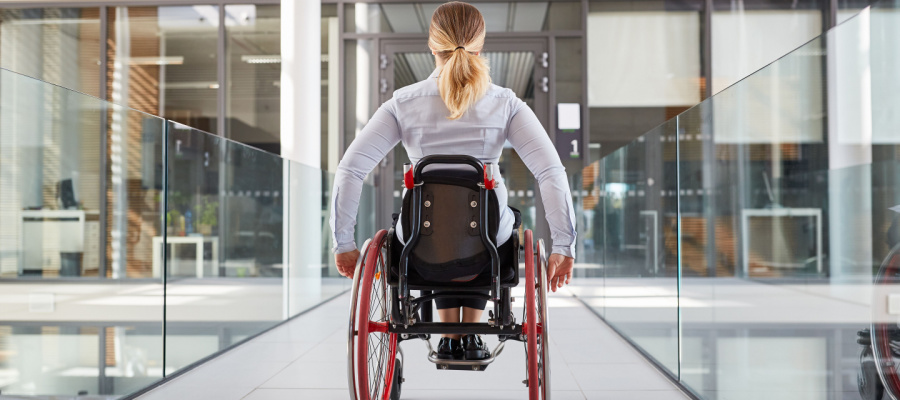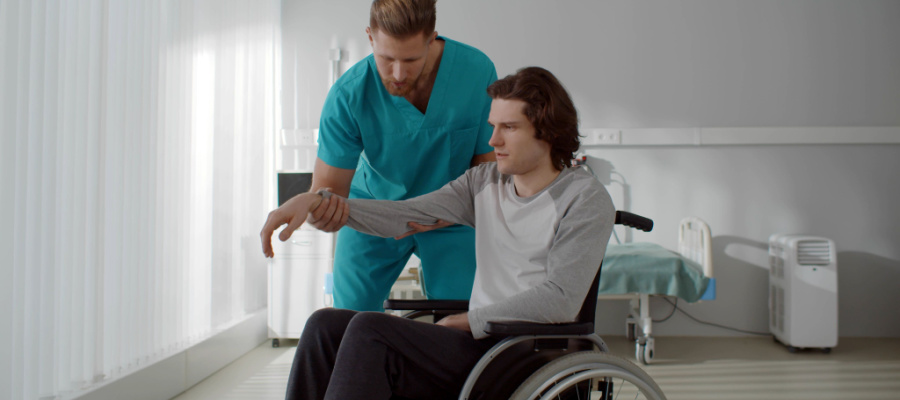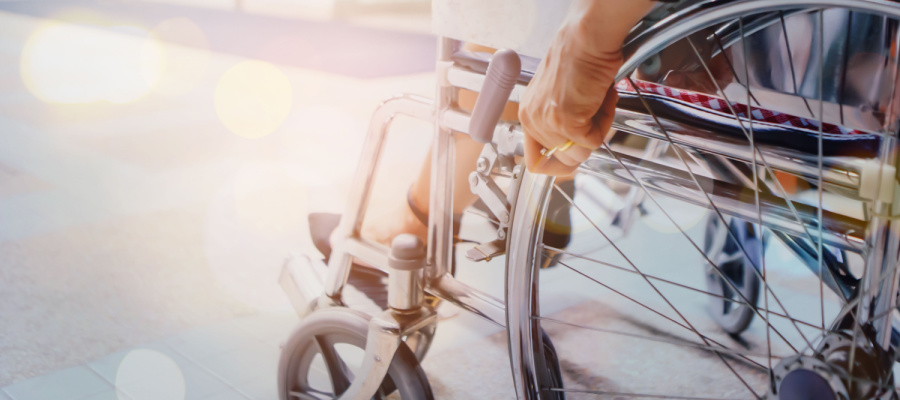Does Paralysis Affect Life Expectancy?
Paralysis is a life-altering condition that can result from various causes, including spinal cord injuries, neurological disorders, or stroke. Many people who experience paralysis wonder about its impact on their life expectancy. While paralysis itself doesn’t automatically determine how long a person will live, it can influence the individual’s overall health and potential risks.
At Devoted Helpers, a home care agency in Sugar Land, Texas, we understand that those living with paralysis require personalized care to enhance their quality of life and support their medical and emotional needs. In this article, we’ll explore the relationship between paralysis and life expectancy, how paralysis can impact health, and how Devoted Helpers supports individuals with paralysis to live their best lives.
What is Paralysis?
Paralysis refers to the loss of the ability to move one or more parts of the body due to damage to the nervous system. This condition can affect the arms, legs, face, or other areas of the body, depending on the severity and location of the injury or condition.
Paralysis can be partial (affecting only certain parts of the body) or complete (where a person loses all function in an area). It can also be classified as…
- Monoplegia – Paralysis of one limb.
- Hemiplegia – Paralysis of one side of the body.
- Paraplegia – Paralysis of the lower half of the body, including the legs.
- Quadriplegia (Tetraplegia) – Paralysis of both the upper and lower limbs, affecting all four limbs.
Paralysis can result from spinal cord injuries, diseases like multiple sclerosis or Parkinson’s disease, or strokes that damage areas of the brain responsible for motor control.
Does Paralysis Directly Affect Life Expectancy?
Paralysis itself does not directly determine life expectancy. The severity of the paralysis, the underlying cause, and the level of healthcare and support a person receives can all influence how long they live.
a. Underlying Causes of Paralysis
The impact of paralysis on life expectancy largely depends on what caused the paralysis. For example…
- Spinal Cord Injury – A spinal cord injury (SCI), especially if it results in quadriplegia, may lead to complications such as respiratory issues, infections, or pressure sores, which can affect overall health and life expectancy. However, advances in medical care and rehabilitation can greatly improve quality of life and outcomes.
- Stroke-Induced Paralysis – Paralysis resulting from a stroke is typically associated with other complications, such as high blood pressure or heart disease, that can impact life expectancy. Recovery from stroke-related paralysis varies based on the extent of brain damage.
- Neurological Conditions – Conditions like multiple sclerosis (MS), Parkinson’s disease, or amyotrophic lateral sclerosis (ALS) may lead to progressive paralysis over time, and each condition has its own implications for life expectancy.
b. Complications Associated with Paralysis
While paralysis itself may not drastically shorten life expectancy, it can increase the risk of certain health complications that affect longevity. These include…
- Respiratory Issues – In severe cases of paralysis, especially quadriplegia, paralysis of the respiratory muscles can make breathing difficult. This may increase the risk of pneumonia, respiratory infections, or other life-threatening complications.
- Cardiovascular Problems – Lack of mobility may lead to blood clots, deep vein thrombosis (DVT), or pulmonary embolism, all of which can impact overall health and life expectancy. Regular movement, physical therapy, and proper care can help reduce these risks.
- Urinary and Bowel Complications – Paralysis can affect the control of the bladder and bowel, potentially leading to infections or other complications if not managed properly.
- Skin Issues – Prolonged immobility can lead to pressure sores or bedsores, which, if left untreated, can result in serious infections.
c. Access to Care and Rehabilitation
Life expectancy for individuals with paralysis has significantly improved over the years thanks to advances in medical care, rehabilitation, and assistive technologies. Access to specialized care and physical therapy can help individuals manage complications, prevent secondary conditions, and improve their overall quality of life. Those who receive consistent care and proper management of their condition tend to live longer, healthier lives.
How Does Paralysis Affect Quality of Life?
While life expectancy is one factor to consider, it’s equally important to focus on the quality of life for individuals living with paralysis. The way paralysis impacts daily living can vary significantly, depending on the severity and the individual’s circumstances.
Key factors that can affect quality of life include…
- Physical Independence – Paralysis can impact a person’s ability to perform daily activities, such as dressing, eating, or using the bathroom. With in-home care or support from a caregiver, many individuals with paralysis can retain a sense of independence and dignity.
- Mental and Emotional Health – Coping with paralysis can take an emotional toll, leading to feelings of isolation, depression, or anxiety. Having access to counseling, support groups, or mental health professionals can significantly improve emotional well-being.
- Social and Community Involvement – Individuals with paralysis can continue to be active members of their communities with the right support. Adaptive technologies, accessible transportation, and social support can help reduce isolation and promote social engagement.
How Devoted Helpers Supports Individuals with Paralysis
At Devoted Helpers, we understand the unique needs of individuals with paralysis. Even the paralysis is the result of an injury, illness, or a chronic condition, our team is committed to providing compassionate care to improve both life expectancy and quality of life.
Our in-home care services are tailored to meet the specific needs of each individual, including…
- Personal Care Assistance – We assist with daily tasks like bathing, dressing, and grooming to ensure comfort and dignity.
- Mobility Support – Our caregivers help with mobility and movement to prevent complications like bedsores and blood clots. We also support patients with physical therapy exercises and assistive devices to improve their range of motion.
- Health Monitoring – We monitor and track vital signs, assist with medication management, and ensure that patients receive timely care for any medical issues.
- Emotional and Social Support – Our team provides companionship, support for mental health, and help with social activities, helping patients stay connected with loved ones and their communities.


